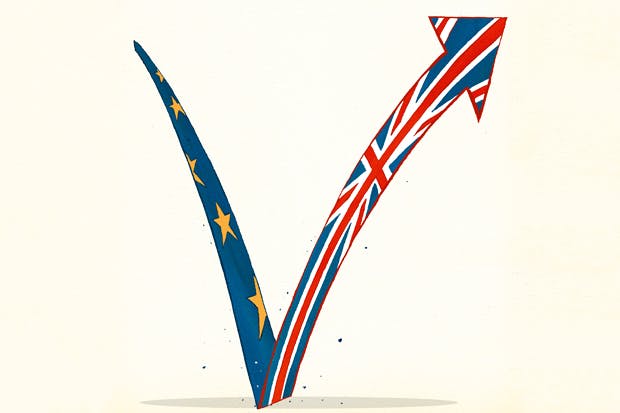Should the exit bill be €20bn or €40bn? Should the trade deal be the ‘Swiss-plus’ or ‘Canada-lite’? Should our negotiating strategy be the full cliff-edge, or should we opt for the reverse gear? If we had a couple of micro-chip factories for every different version of Brexit on offer, we’d probably be worrying about it a lot less. But in fact there is something far more important than whether we end up with a hard or soft Brexit – and that is a quick Brexit.
Ask anyone in business – and the debate about how to leave the EU is mostly about preserving the economy – and they will tell you that it is often just as important to get things done fast as to get them completely right. That is why the software industry releases Version 1.0, Version 2.0 of every package, and it is why the app companies release new gizmos in beta. We should deploy the same tactics with the EU – for three reasons.
First, it will end the uncertainty. As it turns out, since the referendum most companies have carried on trading much as they always have. But if there are to be some modest tariffs or customs checks at the border, and if firms do need to appoint an agent in Paris or Frankfurt to comply with single market rules, then the sooner everyone knows that the better. It won’t be a big deal. Most tariffs are fairly insignificant. But if you know what they are, you can get on with making any necessary adjustments.
Second, we can start planning for what comes next. What kind of economy do we want after we leave? Will it be the full Singapore-by-the-Thames? Or something more statist? What kind of tax and regulations do we want? Do we want to subsidise famers the way we do now? Or would we rather spend the money on something else? There are lots of issues the UK needs to debate once we have taken powers back from Brussels. But we can’t really start that conversation until after the exit deal is done.
Finally, we can always improve on it later, just like they do at Apple. In truth, leaving the EU is always likely to be an evolving process (just like staying in would have been). Our relationship with Europe will change over time whether we are in or out. Whatever we agree now on trade, citizen’s rights, or the Irish border can always be tweaked later on once we see how it has worked out.
In fact, the odd ten billion on the exit bill, or a few extra citizens’ rights, won’t matter nearly so much as just getting the whole thing wrapped up. If Theresa May decides to make some concessions tomorrow in her Florence speech to try and achieve that, they may not be completely justified. But if they allow us to end the saga quickly they will be worth it. We can move onto what comes next – and not spend eighteen months haggling over every last detail of our departure.






Comments